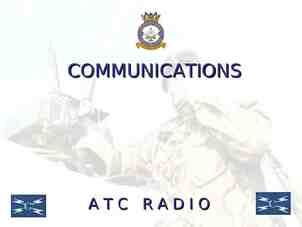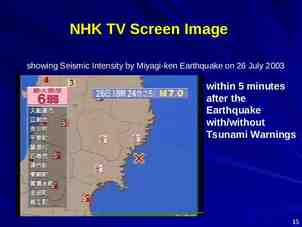Baccalaureate Degrees and Accreditation Craig Rutan (Santiago
16 Slides3.22 MB

Baccalaureate Degrees and Accreditation Craig Rutan (Santiago Canyon College) Ekaterina (Katia) Fuchs (City College of San Francisco)

A Brief History SB 850, signed in September, 2014 allowed 15 colleges to each run one baccalaureate program How were the pilot programs selected? The initial pilot was to run through 2022 The pilot has been extended through 2026, and the restriction of only one program per college has been lifted.

Programs that Started in Fall 2016 Antelope Valley – Airframe Manufacturing Technology Bakersfield – Industrial Automation Feather River – Equine and Ranch Management Foothill – Dental Hygiene Rio Hondo – Automotive Technology San Diego Mesa – Health Information Management Santa Monica – Interaction Design Shasta – Health Information Management Skyline – Respiratory Care West Los Angeles – Dental Hygiene 3

Programs that Started in Fall 2017 Cypress – Mortuary Science MiraCosta – Biomanufacturing Modesto – Respiratory Care Santa Ana– Occupational Studies Solano – Biomanufacturing 4

5

Accreditation of Baccalaureate Programs Community Colleges offering a baccalaureate program often have to complete programmatic accreditation and accreditation by ACCJC. Program accreditors often place specific curricular and faculty qualifications on the program. Program accreditors often require documentation that all program requirements are met and a site visit is often included. When initially creating a baccalaureate program, colleges will need to submit a substantive change report to ACCJC. Representatives from the Commission will visit the college to evaluate the program and grant initial approval. Baccalaureate programs are incorporated into ISERs following the

What to expect from ACCJC ACCJC has produced a highlight document on the expectations for colleges implementing a baccalaureate program (link) Colleges must be able to demonstrate that baccalaureate programs are funded, have sufficient resources, have qualified faculty, have integrated the program into institutional planning (all of these are expected for every program), and that there is a clear distinction between the learning outcomes for lower and upper division coursework.

Inconsistencies between ASCCC and ACCJC The expectations that ACCJC and ASCCC laid out for baccalaureate programs are similar, but they are not exactly identical. ASCCC (and the CCCCO) currently calls for colleges to have students complete CSU GE Breadth or IGETC and 6 units of upper division general education. ACCJC requires fewer units of lower division GE and 9 units of upper division of GE. Now that ACCJC is able to accredit more baccalaureate programs, they have indicated that they are willing to work with ASCCC and the CCCCO to bring the expectations into alignment

Modesto Junior College Bachelor’s of Science in Respiratory Care Modesto Jr. College/Skyline College Bachelor’s of Science in Respiratory Care 9

Respiratory Care Profession 21, 000 Licensed Practitioners (California) Licensure – Credential and Associate Degree Completion 2/3 Associate Degree Prepared Limited Bachelor’s Degree Programs in California Movement Towards Bachelors Degree Requirement American Association for Respiratory Care (AARC) California Society for Respiratory Care (CSRC) Committee on Accreditation for Respiratory Care (CoARC) California Respiratory Care Board (RCB) 10

Movement Towards a B.S. Degree

Extensive Process Application Submitted to CCC Chancellor's Office Site Visit – CCC Approved (CCC and ACCJC) 2 2 Hybrid Program with target for Online offering Developed Curriculum (including Higher Division GEs) Lots of Symposiums, Sessions, Conferences Marketing Faculty Application process (Application Criteria)

Program Design Working Adults 15 Month/Accelerated Program Online 8 Weeks/Sessions (2 courses) 16 Week Semester 40 units 28 Respiratory Core Courses 12 Upper Division GE Courses Final Capstone Project 13

Continuing work on baccalaureate programs At the Fall 2019 Plenary Session, ASCCC adopted resolution 6.01 F2019 that called for the baccalaureate programs to become permanent and resolution 6.02 F2019 calling for the expansion of the baccalaureate programs to other colleges. Resolved, That the Academic Senate for California Community Colleges support the expansion of baccalaureate degree programs in the California community colleges in disciplines and communities that best serve the students of the California Community Colleges; and Resolved, That the Academic Senate for California Community Colleges urge the prioritization of programs in allied health fields in the expansion of baccalaureate degree programs.

Will my college ever get to offer a BS degree? For new baccalaureate degrees to be established, the Legislature will need to expand the program. Representatives from the colleges with baccalaureate degrees have been working with legislators to makes the degrees permanent and expand the offerings to other colleges. The Legislative Analyst Office has released their final report on the baccalaureate programs (link) but their recommendations were not as positive as many in the system had hoped. At this point, the future expansion of these programs is unclear.

Thank You! [email protected] Questions? Rutan [email protected]






